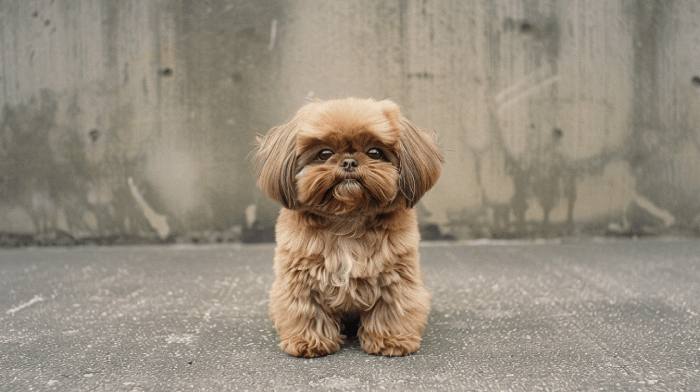Embarking on the journey of pet ownership can be one of the most rewarding experiences, especially when considering bringing a Shih Tzu into your home. These adorable, affectionate dogs have charmed their way into the hearts of many, often appearing as the perfect companion with their luxurious coats and endearing personalities. However, like any significant decision, it’s crucial to look beyond the surface and understand what owning a Shih Tzu truly entails.
We aim to provide first-time pet owners with a comprehensive understanding of the breed’s challenges, health considerations, and behavioral traits. While the title might seem harsh, this article is designed to equip potential Shih Tzu owners with the knowledge needed to make an informed decision, ensuring a happy and healthy life for both the dog and its owner.
To help you make that decision we created the most comprehensive guide possible, and there’s a lot to unpack. We divided this article into 7 sections, to make the content more digestible. Please use the Table of Contents below to get to the information you need. We truly hope this helps you a lot, and we look forward to seeing photos of you and your new companion and family member.
Section 1: Shih Tzu Health and Aging

With their charming looks and sweet nature, it’s no wonder Shih Tzus are so popular! But before welcoming one into your home, taking the time to understand their potential health challenges is essential. This knowledge empowers you to be a proactive owner, providing the best possible care for your Shih Tzu from puppyhood to its golden years.
The Reality of Shih Tzu Health Challenges
Shih Tzus, like all dog breeds, have certain health predispositions. The good news is that being proactive gives you the best chance to promote your Shih Tzu’s long-term wellbeing and reduce the risk of serious health problems. Here’s how.
Partner with Your Veterinarian: Regular checkups are crucial for Shih Tzus. Your vet can establish a baseline for your pet’s health, spot potential issues early, and provide recommendations for preventative care like vaccines and parasite control. They can also monitor for illnesses Shih Tzus are prone to.
Invest in Preventative Care: Don’t skip those annual vet visits, dental cleanings, or recommended health screenings. Proactive care often catches potential health concerns early when they’re generally easier and less expensive to manage. Pay particular attention as your Shih Tzu ages, as the risk of old Shih Tzu health problems increases.
Pay Attention to Your Shih Tzu: You know your dog best! Watch for subtle changes in their behavior, appetite, or activity levels. Any unusual or persistent changes warrant a call to your vet.
Leading Causes of Mortality in Shih Tzus
Understanding the factors most commonly contributing to mortality in Shih Tzus is important for any potential owner. This knowledge helps you and your veterinarian focus on the areas where preventative care and monitoring can make the biggest difference in your Shih Tzu’s lifespan.
Shih Tzu Common Cause of Death While Shih Tzus can live long lives, some health conditions occur more frequently in the breed. These include:
-
- Kidney Disease: Kidney problems can develop with age or stem from genetic predispositions. Regular blood and urine testing help veterinarians detect kidney issues early when treatment options are most effective.
- Cancer: Various types of cancer can affect Shih Tzus. Be vigilant for lumps, unusual bleeding, weight loss, or significant changes in your dog’s energy levels.
- Heart Disease: Some Shih Tzus are prone to heart problems. Your veterinarian may recommend screenings, particularly as your dog ages.
- Infections: If left untreated, infections can lead to serious complications. Ensure your Shih Tzu is up-to-date on vaccinations and seek quick veterinary care for signs of illness.
What is The Most Common Cause of Death in Shih Tzus?
Sadly, cancer frequently shortens the lives of Shih Tzus. While not every cancer is preventable, early detection through regular exams and age-appropriate screenings can drastically improve treatment outcomes.
Important Note: This list is not meant to be exhaustive or to scare you. With proactive care and a bit of luck, your Shih Tzu can live many happy years!
Aging in Shih Tzus: What to Expect
It’s always challenging to witness your furry companion slow down. Still, there are many ways to provide comfort and maintain their quality of life during this stage. Understanding how aging might change your Shih Tzu can help you adjust their care and support them through their golden years.
Typical Changes in Aging Shih Tzus
- Activity & Sleep: Your Shih Tzu may sleep more, have less energy, or seem less excited about their usual walks and games. Adjust activities to match their current abilities.
- Senses: Gradual decreases in vision and hearing are common. Be patient and make adjustments, like avoiding sudden movements and using clear verbal commands.
- Coat & Appearance: Coat thinning and graying are typical signs that your Shih Tzu is becoming a distinguished senior!
Maintaining Your Senior Shih Tzu’s Wellbeing
-
Old Shih Tzu Health Problems
- Joint Pain: Provide soft bedding, consider ramps for stairs, and ask your vet about pain management and supplements.
- Dental Issues: Regular brushing, professional cleanings, and vet checkups are crucial for dental health.
- Cognitive Changes: Maintain routines, offer gentle mental stimulation (like puzzle toys), and consult your vet if you notice significant behavioral changes.
- Vet Visits: These remain crucial! Senior checkups help track changes, detect problems early, and ensure your Shih Tzu gets the best care as they age.
Cancer: A Major Concern for Shih Tzus

Unfortunately, cancer is a significant health concern for Shih Tzus. Knowing the potential signs of cancer and understanding your options if your dog receives this diagnosis can make a difficult situation a little easier to navigate.
Shih Tzu Cancer Symptoms
-
- Lumps and Bumps: Investigate any new lump or unusual growth, regardless of size – these should be checked by your veterinarian.
- Unexplained Weight Loss: A sudden drop in weight could be a sign of many health problems, including cancer.
- Lethargy: Schedule a vet check if your Shih Tzu seems abnormally tired or uninterested in their usual activities.
- Behavioral Changes: Be alert for changes in personality, irritability, or hiding, which could indicate pain or discomfort.
- Decreased Appetite: Pay attention if your Shih Tzu stops eating or loses interest in their food.
- Unusual Discharge or Bleeding: These symptoms always warrant a veterinarian’s attention.
-
Signs a Dog is in Pain from Cancer:
- Limping or favoring a specific leg
- Reluctance to move or be touched in a certain area
- Unusual guarding behavior or snapping when approached
- Changes in posture (hunched back, tense abdomen)
Cancer in Shih Tzus: Navigating the End-of-Life
-
- Your Veterinarian as Partner: If your Shih Tzu is diagnosed with cancer, have an open conversation with your vet about treatment options, potential outcomes, and the expected lifespan.
- Quality of Life: This should be your guiding principle, particularly with terminal cancer. Ask your vet to help assess your Shih Tzu’s pain levels and overall comfort.
- Palliative Care: Even if treating cancer isn’t an option, focus on keeping your Shih Tzu comfortable with pain management, appetite support, and lots of love.
Important: The signs above can arise from many other conditions, not just cancer. Always seek your veterinarian’s assessment for any changes in your Shih Tzu.
Recognizing the End: Signs and Symptoms
Saying goodbye to a beloved pet is never easy. Being aware of the signs that your Shih Tzu may be nearing the end of their life can help you prepare emotionally and ensure they are as comfortable as possible during their final days.
Signs That Your Shih Tzu Is Dying
-
- Significant Loss of Interest: Refusing food and water, no longer wanting to engage in play or go for walks, and withdrawing from interactions are often signs that the body is starting to shut down.
- Extreme Weakness & Lethargy: Difficulty standing, walking, or appearing significantly weaker daily may indicate that the end is approaching.
- Incontinence: Bladder and bowel control loss is common in the final stages.
- Labored Breathing: Irregular patterns, gasping, or very shallow breaths can indicate that your Shih Tzu is struggling to breathe.
- Changes in Gum Color: Very pale or bluish gums suggest poor oxygenation and require immediate veterinary attention.
Shih Tzu Signs of Death / End of Life Symptoms in Shih Tzus
-
- It’s essential to remember that the signs above can also occur due to treatable illnesses. Always consult your vet for assessment, especially if they appear suddenly.
- These signs can manifest gradually in end-of-life processes caused by old age or sometimes faster with terminal conditions like advanced cancer.
Signs Your Dog Is Dying of Old Age
- In natural decline due to old age, you may observe a gradual slowing down of bodily functions. This might include:
- Increasingly deep and prolonged periods of sleep
- Significant loss of appetite and disinterest in food or water
- Difficulty maintaining balance or a reluctance to move
- Changes in breathing patterns, becoming shallow or irregular
Key Focus: Comfort
If your Shih Tzu exhibits these signs, shift the focus to comfort care. Provide soft bedding, favorite toys, gentle touch, and a peaceful environment. Your veterinarian can help with pain management and guide your decisions throughout this difficult time.
Common Illnesses and Preventative Measures
Like all breeds, Shih Tzus are predisposed to certain health conditions. Knowing about these can empower you to work with your veterinarian to monitor, prevent, or catch symptoms early, giving your Shih Tzu the best chance at a long and healthy life.
Illnesses Shih Tzus Are Prone To
-
- Eye Problems: Shih Tzus, unfortunately, faces an increased risk for issues like dry eye, eye infections, and progressive retinal atrophy, a degenerative condition that can lead to blindness. Regular eye exams are crucial!
- Kidney disease: Kidney problems can have genetic factors but can also develop throughout a Shih Tzu’s life. Routine blood and urine tests allow vets to catch early signs of kidney dysfunction.
- Allergies: Shih Tzus can be prone to skin allergies, causing itchiness, hair loss, and sometimes infections. Your vet can help pinpoint the cause and suggest management strategies.
- Ear infections: The structure of their ear canals can make Shih Tzus susceptible to infections. Be vigilant for symptoms like head shaking, redness, or odorous discharge.
- Patellar Luxation: This knee problem arises when the kneecap slips out of place. Some cases require surgery, so stay alert for limping or an odd hopping gait.
What are the Most Common Diseases in Shih Tzus?
The issues listed above have increased prevalence in the breed. Additionally, dental disease, hypothyroidism (underactive thyroid), and intervertebral disc disease (IVDD) are significant potential concerns.
Preventative Care Makes the Difference!
- Genetics: Ask your breeder about health testing of parent dogs, but know this doesn’t eliminate all risks.
- Veterinary Checkups: Routine physical exams can often detect health issues in their early stages.
- Home Monitoring: Observe your Shih Tzu for changes in behavior, appetite, or activity – anything unusual warrants reporting to your vet.
Section 2: Shih Tzu Behavior and Training

Shih Tzus, like any breed, has potential behavior problems. While they are charming companions, recognizing their breed-specific tendencies and temperament upfront is crucial for a happy and harmonious household. This understanding allows you to proactively train, set realistic expectations, and provide the best environment for your Shih Tzu to thrive.
All About Shih Tzu Temperament
Shih Tzus were historically bred for companionship. Their affectionate personalities often reflect that. However, understanding their distinct temperament and the subtle differences between males and females will help you best connect with your four-legged friend.
Shih Tzu Personality Male vs. Female
While individual dogs will always have their own personalities, there are some general observations about Shih Tzu personality male vs. female. Are males more laid-back? Do females tend to be feistier? Let’s explore whether those stereotypes hold any truth.
Shih Tzu Characteristics Good and Bad
Every breed has a mix of positive traits and potential drawbacks. Being honest about potential Shih Tzu behavior problems upfront allows you to be prepared. We’ll cover the breed’s celebrated charms and those stubborn streaks to be worked on!
Key Takeaway: Knowledge about Shih Tzu behavior problems and temperament helps you avoid surprises and provides you with the tools to manage potential challenges for maximum Shih Tzu happiness!
Shih Tzu Personality: Male vs. Female
It’s natural to wonder if there are notable differences between the Shih Tzu personality male vs. female. Here’s the reality:
- Individuality Rules: Every Shih Tzu, regardless of sex, develops a unique personality based on several factors, including genetics, early socialization, and training.
- Some General Trends: Anecdotal reports suggest male Shih Tzus can be slightly more easygoing and affectionate. At the same time, females can sometimes have a touch more sass and independence. But this is hardly a black-and-white rule!
- Hormones Matter: Unspayed females will demonstrate behavior shifts related to heat cycles, and unneutered males might display dominance-related tendencies like marking. Spaying and neutering often minimize these differences.
- The Best Predictor?: Your Shih Tzu’s upbringing and the effort you put into training will often influence their personality more than their biological sex.
Don’t overthink it!: Selecting a Shih Tzu based solely on their gender risks disappointment. Meeting individual puppies or adult dogs for rescue is better, letting their unique personalities shine!
Shih Tzu Characteristics: Good and Bad
Shih Tzus are undoubtedly charismatic companions, but it’s wise to prepare for both their delightful traits and those potential drawbacks. This awareness equips you to proactively reinforce desirable habits and tackle challenges for a well-adjusted pup.
- The Cuddly Companion: Most Shih Tzus crave human affection. They happily curl up for snuggles, making them wonderful lapdogs and family pets.
- Playful Pals: A quick burst of zoomies? Chasing toys? Shih Tzus have bursts of playful energy, but their exercise needs are usually quite manageable.
- That Stubborn Streak: Shih Tzus have an independent side, occasionally leading to stubborn behavior that makes training more challenging. Consistency and patience are your best weapons!
- Potential Barking: Alert and sensitive, some Shih Tzus become vocal with excessive barking towards strange noises or new faces. Early training to curb this tendency is important.
- Separation Anxiety-Prone: Shih Tzus were bred for company, and many of them struggle with separation anxiety. Preparation and gradual alone-time training are crucial to avoid a distressed Shih Tzu.
Important Reminder: Not every Shih Tzu will display all of these characteristics to the same degree. This overview can guide you as you choose and build a positive relationship with your furry friend.
Common Shih Tzu Behavioral Challenges
It’s wise to recognize those common Shih Tzu behavior problems upfront. This prepares you with proactive training strategies and realistic management methods for a less stressful journey with your Shih Tzu. Let’s tackle those frequent training battles first-time owners often face.
Shih Tzu Behavior Problems
Potty Training Woes: Shih Tzus can be slow to grasp housebreaking! Expect delays, focus on a predictable routine, praise-based reward systems, and minimize indoor temptations.
Excessive Barking: Many Shih Tzus are vigilant ‘alarm barkers.’ Teach controlled quiet times early on to avoid establishing this problematic habit.
Separation Anxiety: Left alone, anxious Shih Tzus might indulge in destructive behavior or panic. Gradual independence training and creating ‘safe spaces’ is vital.
What are the Behavior Issues with Shih Tzus?
The issues listed above are common. Understanding and preventing them reduces potential frustration, strengthening your bond with your Shih Tzu.
Bad Shih Tzu Behaviors and How to Correct Them
Jumping on guests, pulling on the leash, resource-guarding behaviors… we can discuss training and management solutions for common ‘bad’ Shih Tzu behaviors, ensuring you feel confident to redirect them.
Let’s Prioritize. Do you want to start with any particular problem behavior here? We can explore each with specifics about proactive management and positive training solutions.
Demystifying Aggression in Shih Tzus
Shih Tzus are typically affectionate, playful pups. Yet, it’s vital to discuss aggression responsibly, understanding triggers and potential biting behaviors. Let’s separate myth from reality.
Shih Tzu Aggressive Behavior
-
- Fear-Based Reactivity: Feeling frightened or cornered, even small dogs might snap with defensive shih tzu aggressive behavior. We’ll address how to spot the warning signs and prevent these situations.
- Resource Guarding: Some Shih Tzus become protective of valuable objects like toys or food. Early training and establishing proper household hierarchy can minimize this guarding instinct.
- Underlying Issues: Unexplained or disproportionate aggression could signify health problems or pain. Veterinary assessment is necessary in these cases.
Shih Tzu Aggressive Biting
-
- Play vs. Hurt: Puppies often nip during play, unlike true aggressive biting. Teaching “bite inhibition” is important, but doesn’t mean eliminating their playful side!
- Does a Shih Tzu Bite Hurt? While Shih Tzus has small mouths, a bite can still hurt, particularly with children. Addressing any biting tendencies proactively fosters safety.
- Context is Key: Biting is not synonymous with aggression. We’ll differentiate scenarios where a Shih Tzu reacts defensively versus demonstrates uncharacteristic behavior.
Are Shih Tzus Aggressive?
Shih Tzus were historically not bred for aggression. Unfortunately, misinformed reputations persist. While there is always potential for aggressive behavior in any breed, with responsible ownership and training, the odds of a Shih Tzu being truly aggressive are quite low.
Note: We will include actionable training tips, but it’s essential to highlight that for severe, unprovoked aggression, professional behavioral help is the safest and most effective solution.
Shih Tzu Training and Discipline
Training establishes boundaries for a peaceful household and unlocks a fulfilling human-canine bond. Understanding proper discipline techniques tailored to the Shih Tzu temperament goes a long way in preventing those behavior issues from arising.
How Do You Discipline a Shih Tzu?
-
- Focus on the Positive: Shih Tzus responds incredibly well to positive reinforcement-based training. Rewarding desired behaviors is far more effective than harsh punishment.
- Consistency is Key: Clear expectations and consistent training routines form the foundation of success. A “sometimes it’s allowed” approach only confuses your Shih Tzu.
- Redirection, Not Punishment: When your Shih Tzu makes a mistake, steer them toward the right behavior, whether redirecting them from chewing on a shoe towards an appropriate toy or praising them for going potty in the right spot.
What To Do If Your Shih Tzu Is Aggressive?
-
- Rule Out Causes: First, consult your vet to rule out pain or any underlying medical issue contributing to aggression.
- Understanding Severity: Analyze the level of aggression and its pattern. Mild incidents of fear-based snapping might be easier to manage at home, while unprovoked attacks likely necessitate professional help.
- Seek Expertise: Certified trainers or dog behaviorists have the tools and expertise to safely assess and modify severe aggressive behaviors. Never attempt to punish or correct extreme aggression yourself.
Rage Syndrome in Shih Tzu
-
- Rare but Real: This medical condition exists, causing brief and sudden explosive rage that’s distinct from normal aggression. It typically requires careful management with behavioral guidance and possibly medication.
- Don’t Self-Diagnose: A veterinarian diagnosis is necessary before jumping to conclusions. Often, aggression has simpler and actionable causes that can be mitigated with training.
Important takeaway: Effective Shih Tzu discipline stems from consistent positive reinforcement, patience, and a willingness to adapt your approach to the breed’s specific personality.
Special Considerations for Shih Tzu Behavior

While every Shih Tzu is an individual, understanding breed-specific tendencies makes management simpler and training more effective. Let’s tackle those common Shih Tzu quirks!
Shih Tzu Growling When Picked Up
-
- Potential Causes: Some Shih Tzus feel vulnerable or startled when lifted, which might trigger a warning growl. It might also stem from previous pain or an injury if they aren’t held correctly.
- Slow and Steady Wins: Use a gentle touch. Start by rewarding your Shih Tzu for calm behavior during short lifts, and slowly increase the duration.
- Check with your Vet: Underlying pain might need to be addressed, so have your Shih Tzu evaluated to rule out medical reasons for disliking being held.
Understanding Your Shih Tzu’s Behavioral Weaknesses
-
- Stubbornness: Their independent streak can make teaching new skills more challenging. Patience, positive reinforcement, and lots of consistency will prevail!
- Sensitivity: Harsh training methods shut down the sensitive Shih Tzu. Respect their need for gentle yet consistent guidance.
- Socialization Gaps: Some Shih Tzus become nervous around new people or dogs if poorly socialized as puppies. Slow introductions and gradual positive experiences rebuild confidence.
What are the Behavioral Issues of a Shih Tzu?
-
- Barking, potty training woes, and separation anxiety often require the most work during early training. With proactive intervention and patience, these are addressable!
- Uncharacteristic aggression (resource guarding, severe fear-based biting) may need professional support.
- Most Importantly: Every Shih Tzu has their own personality! Some will struggle with certain challenges more than others. Your love and adaptability are their most powerful training tools.
Final Takeaway: Knowledge and empathy will ease those initial training frustrations and foster a wonderful bond with your Shih Tzu companion!
Section 3: Shih Tzu Care and Maintenance
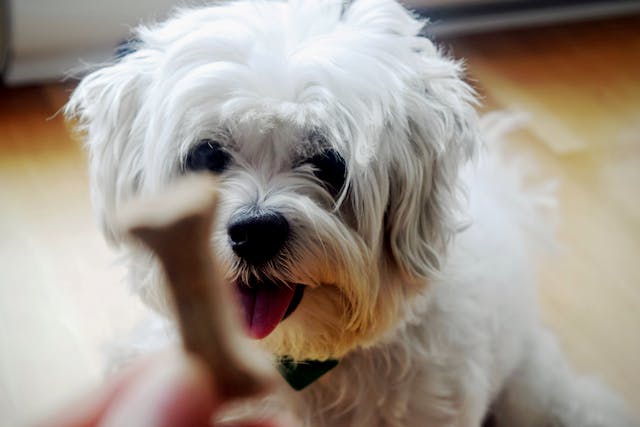
Shih Tzus aren’t simply adorable companions. They’re vibrant little personalities deserving the best care we can offer! Providing for their wellbeing encompasses nutrition, health upkeep, training, and more. A healthy Shih Tzu is a happy Shih Tzu, and proactive care ensures they lead full, enjoyable lives. Understanding their specific needs allows you to form a strong bond with your furry friend. Training teaches important commands that benefit their safety and improve day-to-day life. Even their maintenance (think brushing that gorgeous coat) can be a fun way to nurture a loving bond!
Key Takeaway: Responsible Shih Tzu care ensures you enjoy these loving, lively companions for many years!
Nutritional Management for Shih Tzus
A Shih Tzu’s diet directly impacts their overall health and wellbeing. Let’s talk about what to feed them and the harmful foods you must keep out of reach!
Shih Tzu Food to Avoid
Fatty Meats/Table Scraps: While it’s tempting to share, those scraps can contribute to pancreatitis, a painful and sometimes serious condition sadly common in Shih Tzus.
Grapes & Raisins: Even small amounts can cause life-threatening kidney failure in dogs. Keep these away, regardless of how cutely your Shih Tzu begs!
Xylitol (Artificial Sweetener): Found in sugar-free products like gum and even some peanut butter, xylitol is extremely toxic to dogs, causing dangerous blood sugar drops and liver damage.
Chocolate: The darker the chocolate, the more dangerous it is, even in small quantities.
Onions & Garlic: Whether raw, cooked, or powdered, these disrupt red blood cells in dogs.
Dos and Don’ts Food for Shih Tzu
Do: Choose a high-quality kibble formulated for small breeds. Ask your vet for recommendations, as Shih Tzu-specific options might be better.
Don’t: Blindly assume any human food is safe for your Shih Tzu. Many seemingly harmless foods are surprisingly toxic to dogs. A quick online search before offering even the tiniest nibble is essential.
Do: Consult your vet about their age-appropriate food needs. They can suggest whether your Shih Tzu may benefit from supplements or occasional wet food for digestive health.
Don’t: Make sudden dietary changes. A gradual introduction avoids upsetting their sensitive stomachs and aids healthy digestion.
Do: Measure meals, even with free-feeding kibble. Many Shih Tzus lack ‘self-control,’ making obesity a preventable yet concerning problem.
Don’t: Leave food out all day. Mealtimes encourage healthy meal habits and minimize spoiling in warm environments.
Essential Care Tips for Shih Tzu Puppies
Bringing home a Shih Tzu puppy is an exciting adventure! Ensuring they thrive during their formative months sets them up for a long and happy life. Here’s what you need to know.
Dos and Don’ts for Shih Tzu Puppy
Potty Training 101: Start immediately, rewarding them for every success. Accidents are normal. Never punish an unsure puppy! Consistency, patience, and frequent ‘outside breaks’ are key.
Gentleness Matters: Puppies learn to play, and small breeds mustn’t associate hands with rough interactions. Early handling for grooming minimizes later struggles. Avoid overly boisterous play that can accidentally injure these tiny ones.
Socialization for Success: Controlled exposure to new experiences under your watchful eye helps them become confident adults. Your vet will guide you on when it’s safe to introduce other dogs or new locations. But don’t overdo it: short, positive experiences go a long way!
Shih Tzu Advice for New Owners
A Trusted Vet is a Must: Puppies need frequent checkups and a steady vaccination schedule. This preventive care is crucial right from the start!
Prepare for Teething: Puppies have a natural urge to chew to relieve gum discomfort. Offer safe alternatives. Otherwise, your shoes and furniture will suffer!
Be Consistent: Regular meals, regular exercise, and a daily routine give a puppy a comforting sense of structure. It also promotes easier housebreaking as they associate those needs with certain times.
Watch Closely: Puppies are fast and curious! Remove household hazards (from houseplants to loose wires) to minimize injuries and mishaps.
Important Reminder: Patience is vital! Each puppy has their own tempo – while some readily catch commands, others need extra love and reassurance. Your adaptable approach will nurture them all along.
Training and Commands
While Shih Tzus may have an independent streak, they are trainable with the right approach! These essential commands provide a solid foundation for safety, better manners, and overall communication with your furry friend.
Shih Tzu Training Commands
“Sit”: A versatile command! “Sit” can calm excited greetings, keep them still before walks, and even break their focus on “undesirable activities.”
“Come”: Critical for their safety! Start by practicing “come” indoors with highly desirable rewards (favorite treats or a special toy). Then, gradually build outdoor recalls, knowing you can offer something better than whatever distracts them.
“Stay”: A brief “stay” helps them learn impulse control. Use it at doors to prevent escape artists before getting the food bowl ready or while clipping nails.
“Leave it”: This stops them from investigating questionable finds or sneaking banned ‘snacks .’ It takes dedication, but it can be a lifesaving command! Begin with easy temptation items and tempting “trades” like favorite chew toys.
“Quiet”: Curb excessive barking without resorting to punishments. This works by rewarding brief silences –gradually increasing how long you wait before offering their treat and praise. This needs consistency!
Beyond Basic Commands
Good manners like leash walking, crate training, or playful tricks enhance their quality of life! Remember, the best Shih Tzu training methods are positive, playful, and reward-focused. Harshness backfires on their sensitive nature, making them resistant and anxious learners.
If you encounter difficulties, it’s never a sign of failure to seek support! Enrolling in puppy classes or working with a professional trainer can address specific challenges, guiding you in a way that empowers you and your pup.
Health and Wellness
Your Shih Tzu’s overall wellbeing is a top priority throughout your life! Let’s discuss how to spot potential pain, address those pesky allergies, and ensure they receive optimal care.
Dog Pain Relief
Unlike humans, dogs can’t verbalize when something hurts. That’s why watching for subtle changes in their behavior is important. Reluctance to move, favoring a limb, sudden lethargy, becoming unusually shy or withdrawn, increased anxious behaviors, or snappiness might indicate your Shih Tzu needs help.
Never offer human medication. Painkillers designed for us can be fatal to dogs! Only give pain relievers specifically prescribed by your veterinarian. Any signs of unexplainable discomfort warrant a vet visit to uncover the cause and explore safe treatment options.
Shih Tzu Skin Allergy Treatments
Shih Tzus are unfortunately prone to various allergies that often manifest as skin issues. Persistent scratching, red skin, biting, or patchy fur loss should all be investigated.
Common causes include food sensitivities, fleas, or environmental triggers. But self-diagnosis can delay appropriate treatment! Before initiating treatment, your vet will do tests to rule out other skin conditions or parasites that mimic allergy symptoms.
Depending on what’s causing the itch, options may include dietary changes, medicated shampoos, antihistamines, or even more specialized approaches directed at the root cause discovered by your vet.
Staying Alert
Proactive health care extends beyond pain and itchiness! Ensuring appropriate eye care, regular dental cleanings, and parasite prevention (as recommended by your vet) are vital for promoting longevity in your Shih Tzu.
Always remember that regular checkups and early intervention are key to minimizing costly problems later on while giving your Shih Tzu the best life possible.
Understanding the Maintenance Needs
There’s no denying the charm of a Shih Tzu, but the breed does come with some maintenance requirements. This plays a major part in their reputation – so let’s get honest!
Are Shih Tzus High Maintenance?
Grooming: The Truth Hurts (a Little!) Their glorious coats don’t stay beautiful by magic. That means daily brushing to prevent mats, regular baths, and either home trims or trips to a professional groomer. Neglect leads to painful skin problems and general doggy discomfort.
Eyes and Ears: Extra TLC Required. Those adorable Shih Tzu eyes need careful attention to prevent staining and potential infections. Their floppy ear anatomy calls for regular cleaning to avoid bacterial buildup.
Initial Cost is Real: Even if you DIY at home, quality brushes, combs, shampoos, and nail clippers are costly. But professional grooms add up quickly, too – potential owners should research prices in their area!
Health Isn’t Guaranteed: Small breeds can sometimes have larger vet bills. Knowing the breed’s predispositions (dental problems, eye issues, etc.) beforehand ensures you’re financially prepared, just in case.
Are Shih Tzus Expensive to Maintain?
Consider Your Budget: It’s essential to be realistic, calculating everyday costs alongside potential ‘surprise’ expenses. A budget for vet care, grooming, quality food, training, and supplies provides clarity – are you truly equipped for their financial needs?
Time is More Than Money: Daily brushing, gentle cleaning around their eyes, and those ear checks take dedication alongside cost. Ensure your lifestyle permits those grooming moments, not just special grooming day treats.
It’s About You
If caring for their unique needs becomes a source of joy, the breed’s ‘high maintenance’ reputation melts away! With financial preparation, the willingness to learn, and genuine dedication to their care, these efforts simply become part of loving your Shih Tzu.
Considerations Before Owning a Shih Tzu
By now, you understand the appeal of Shih Tzus – but responsible ownership entails awareness of potential downsides before bringing one home. Let’s examine a few aspects worth careful thought.
What Not to Do with a Shih Tzu?
Neglecting grooming leads to matted fur, infections, and discomfort. This isn’t a breed wash-and-go, nor are they ‘outdoor only’ dogs suited to rugged living. Ignoring training leaves even small dogs capable of big problems! Jumping up, excessive barking, or destructive behaviors are unfair to your pup and can be resolved with proactive training. Finally, skipping preventative health care is ill-advised! Shih Tzus can be prone to specific issues, and ignoring preventive veterinary care risks more problems and higher medical costs later.
What Are the Disadvantages of Having a Shih Tzu? (What are the cons of owning a Shih Tzu?)
Many Shih Tzus struggle with separation anxiety, making them high-needs emotionally with the potential for destructive behavior when stressed. They are prone to several health issues, including eye problems, dental disease, and even luxating patellas (bad kneecaps), increasing long-term care costs. Additionally, some easily become “yappy,” requiring dedicated training to address nuisance barking (harsh punishments shouldn’t be resorted to, as this further increases anxious barking.) Finally, while lovable, remember their stubborn streak! While patient training overcomes most obstacles, expecting instant obedience isn’t realistic with many Shih Tzus.
Key Takeaway: Being informed about these realities doesn’t make Shih Tzus a “bad” breed! On the contrary – a dedicated and loving owner is aware of and proactively prepared for potential challenges. This maximizes positive experiences and allows you to create a strong, enduring bond with your Shih Tzu.
Section 4: Shih Tzu Pricing and Acquisition
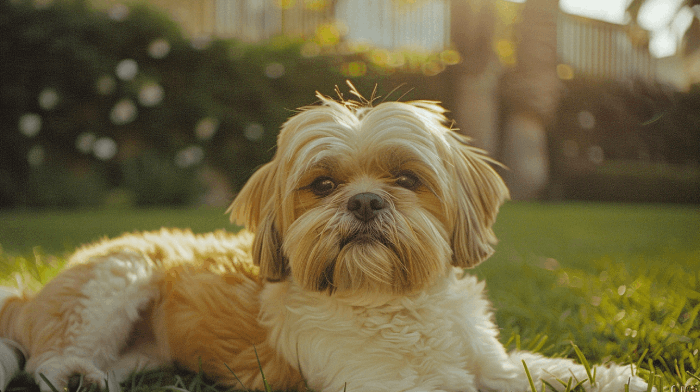
The price of a Shih Tzu can vary dramatically based on where you choose to buy one. Whether you opt for a reputable breeder, a pet store, or even explore Shih Tzu rescues, each source uniquely influences the cost. Before letting those adorable puppy eyes sway you completely, it’s vital to understand what plays into that price tag.
Here are some key factors to consider:
Purity: If your heart is set on a show-quality Shih Tzu with AKC registration and generations of champion ancestors, be prepared for a substantial investment. Pet quality pups without extensive pedigrees tend to be more affordable but may still be purebred!
Color: In the Shih Tzu world, supply and demand dictate some price trends. If you have a specific color preference, like solid brown or liver, know these less common options might come at a premium compared to more abundant coat patterns.
Size: The “teacup” hype carries a significant price tag! While those petite pups appear desirable, ethical concerns and increased potential health issues should be weighed as carefully as the financial commitment.
Understanding Shih Tzu Prices
Shih Tzu pricing fluctuations by location and over time require careful budgeting alongside researching typical expenses. Knowing what’s standard helps you avoid tempting red flags that potentially invite future heartache (and costly vet bills!). Let’s break it down.
Shih Tzu Dog Price
A responsible breeder specializing in healthy pups who lack significant breed show titles and have “pet quality” (sometimes non-breeding) status will generally sit anywhere from $1,000 to $3,000+. Factors like coveted bloodlines or a highly unusual color can increase those prices.
Shih Tzu Price Without Papers
Forgoing those coveted AKC (or regionally equivalent) registration papers means you might find Shih Tzus in the $500 – $1,500 range. These could still be purebred pups but without that lineage proof. It’s essential to assess a seller’s transparency and commitment to health regardless of pedigree or cost.
How Much Does a Shih Tzu Dog Usually Cost?
Don’t just focus on that initial purchase tag! A Shih Tzu from a reputable breeder can fall anywhere from $500 to $1,800+, and sometimes even higher for highly sought-after colors or bloodlines. But that’s only the beginning! Shih Tzus requires specialized grooming, top-notch nutrition, and preventative veterinary care that add up significantly over their lifespan. The first year of puppyhood typically incurs the biggest expenses, ranging from $2,000 – $4,000 due to initial vaccinations, spaying/neutering, and those extra new pup supplies.
Color Variations and Pricing
While all Shih Tzus are adorable, specific coat colors may influence their price point. Let’s dive into understanding those nuances.
White Shih Tzu Price: Despite their elegance, solid white Shih Tzu doesn’t automatically guarantee a higher price tag. Since their genes are recessive, achieving those pristine coats might require dedicated breeding efforts. Generally, expect white Shih Tzus to fall within the typical $500 – $1,800+ range across the breed unless accompanied by rare markings or an exceptional pedigree that drives up their value.
Black Shih Tzu Price: Shih Tzus sporting an entirely black, solid coat is another unique find. This shade can sometimes translate into slightly increased prices due to genetic factors and breeding requirements. Yet, ethical breeders prioritize ancestry and quality overcoat color rarity alone.
Brown Shih Tzu Price: Get ready for steeper prices on those adorable chocolate/liver Shih Tzus! Their brown tones aren’t common, which means demand exceeds supply, and breeders might charge anywhere from $1,000 – $4,000, potentially higher depending on pedigree. Still, health-focused breeders ensure those desirable traits and lineages back up any increased price tag.
Most Expensive Shih Tzu Color: Determining the single “rarest” Shih Tzu color that consistently garners top prices is unrealistic. Regional preferences and individual features come into play alongside unique combinations. For example, those coveted solid coat colors (like pure black or white) might command significant pricing, especially when paired with unusual features like brilliant green or hazel eyes.
It’s important to remember that prioritizing colors or trends over proper temperaments and health is a disservice to these amazing companions. Ethical breeders are committed to producing long-lived, stable Shih Tzus – regardless of their coat!
Specialty Shih Tzus and Their Pricing
Certain variations of Shih Tzus are marketed heavily based on their physical appearance, commanding significantly higher prices.
Be wary of such trends, prioritizing responsible breeding and the dog’s health above its price tag or size.
Teacup Shih Tzu Price: Prepare for exorbitant prices attached to “teacup” Shih Tzus. Sadly, this trend lacks regulation, enabling irresponsible breeders and puppy mills to profit from intentionally breeding unhealthy, small-sized Shih Tzus or mislabeling premature puppies. Expect the cost for a “teacup” Shih Tzu to escalate rapidly, starting at the $3,000+ range and skyrocketing well beyond. However, those astronomical prices come at an even higher cost. These dogs carry significant lifelong health concerns and reduced lifespans, a heartbreaking sacrifice made for appearances alone.
What Type of Shih Tzu is More Expensive?
Aside from the “teacup” fad, breeders specializing in Imperial or “tiny toy” Shih Tzus (those ethically aiming for sizes below 4 pounds at maturity) often charge steeper prices. Buyer, beware! Prioritizing diminutive size above all else often compromises health in this already small breed.
What Makes a Shih Tzu Rare?
Genetics plays a major role in dictating Shih Tzu’s rarity and potential price hikes. Colors or markings not commonly seen, specific desirable patterns, or even stunning eye colors deviating from breed standards contribute to increased perceived value. But it’s important not to become fixated on uniqueness for uniqueness’s sake – health and overall temperament should always remain the first priority.
What is the Most Expensive Shih Tzu?
Dogs boasting exceptional bloodlines bursting with champion titles and a unique appearance fuel those extravagant, record-breaking sales prices. For example, a highly coveted mini or teacup Shih Tzu might sell for $8,000 or even substantially more on rare occasions! However, those seeking a stable, loving companion to enrich their lives instead of the next dog show winner should never view these situations as the norm. A happy Shih Tzu’s health and solid temperament far outweigh a stratospheric price or trendy traits that could compromise wellbeing.
Identifying Purebred Shih Tzus
If you want to confirm whether your Shih Tzu boasts a pure lineage, there are ways to get beyond guesswork based on appearances alone! Let’s discuss how.
How Do I Know if My Shih Tzu is Purebred?
Shih Tzus have a distinct look: that flowing coat, shorter muzzle, prominent eyes, and undershot jaw are iconic signatures of the breed. However, some mixed-breed dogs can easily mimic several of these characteristics. For true certainty, documentation provided by breeders is vital. Reputable breeders offer AKC (or your region’s equivalent kennel club) registration paperwork with your puppy, establishing its pedigree.
Rescues are also transparent, often identifying any suspected Shih Tzu mixes based on physical characteristics, even if they lack that formal “proof” of lineage. If, despite everything, there is still doubt about your dog’s origins – especially with an older dog – specialized canine DNA tests offer a way to scientifically determine what breeds contributed to a dog’s genetic makeup.
Why Are Shih Tzus So Expensive?
Breeding responsibly adds substantial expenses, contributing to higher Shih Tzu prices than other breeds. Ethical breeders are committed to ensuring their breeding dogs are healthy and possess desirable temperament traits, then provide extensive prenatal and early puppy care to give each pup the best start in life. Additionally, puppies from prestigious, champion bloodlines tend to come with even higher price tags due to their greater potential for becoming successful show dogs.
Finally, let’s remember those iconic looks require substantial upkeep! Breeders recognize that not all owners account for recurring grooming costs or high-quality care products essential for keeping Shih Tzus in peak condition before bringing them home, a factor occasionally reflected in overall pricing.
Price Range and Acquisition Tips
The price tag isn’t the only consideration – prioritizing responsible choices makes all the difference! Let’s explore ways to ensure you bring home a healthy, happy Shih Tzu regardless of your budget.
What is the Lowest Price of a Shih Tzu?
If an advertised price seems unusually low for a “purebred” Shih Tzu, raise your alarm bells! Deals seemingly too good to be true often mask shady practices such as unhealthy puppy mill operations or outright scams. Remember, those low prices come at a later cost: heartache when unexpected illness arises and extensive veterinary bills when breeding is focused on profit instead of a dog’s health, which creates future wellness woes.
Acquisition Tips for Prospective Owners
Adopt, Don’t Shop: Don’t count out rescues! Consider breed-specific shelters or humane societies offering adult Shih Tzus in need of homes or playful mixes at lower costs than breeder acquisition. Adopting could be your ethical, loving, and budget-friendly route if a puppy isn’t an absolute must!
Red Flags: Steer clear of breeders selling multiple breeds at once, those unwilling to discuss health testing and certifications of breeding dogs, or anyone guaranteeing ‘instant’ puppy availability. These are clear warning signs of practices prioritizing quantity over quality.
Ask Plenty of Questions: A responsible breeder invites, even insists upon, detailed inquiries! They’ll openly discuss their breeding goals and practices and offer insight into a litter’s pedigree. A reputable breeder thoroughly vets potential buyers – they want the best match for their cherished puppies.
Health is #1: Don’t get distracted by “designer” appearances. Prioritize proof of regular vet visits for puppies and comprehensive health certification for the parent dogs. These factors, far more than color or trends, demonstrate the breeder’s commitment to healthy lineages.
Key Takeaway: While a Shih Tzu from a reputable source requires financial investment, this often translates directly into a lifetime of better health and a happier companion. When seeking a reputable breeder, ethical rescue efforts or patient investigation allow even those on a budget to welcome a Shih Tzu into their lives. Simply ensure your dedication to thorough research and prioritizing animal welfare outweighs the pressure to “get a puppy NOW”!
Section 5: General Dog Care and Health Signs

Our canine companions can’t directly tell us when they hurt or feel unwell. As their guardians, this makes us responsible for becoming attuned to the subtle ways they communicate pain and discomfort. Mastering reading their body language and behaviors is key to being a proactive owner.
The sooner you recognize potential pain or distress signals, the faster you can seek appropriate care, offer your dog relief, and prevent a decline in their wellbeing. This section will equip you to decode the various behavioral cues that might signal different degrees of discomfort, empowering you to advocate for your dog’s health and happiness.
Identifying Signs of Pain in Dogs
Unfortunately, many dogs instinctively mask their discomfort, a survival trait inherited from their wild ancestors. This means we cannot rely on obvious signals alone. Sometimes, a seemingly random yelp when lying down might be the initial, startling clue that your pup is suffering silently. Such sharp vocalizations or sudden yelps when settling indicate the possibility of a physical issue like back pain, muscle strains, or joint problems such as arthritis in aging dogs. A prompt veterinary visit is essential in these cases to uncover the underlying cause and begin appropriate treatment.
Dog Randomly Yelps When Lying Down
Hearing your dog suddenly cry out or yelp as they lie down can be a startling and distressing experience. It’s important to remember that such vocalizations are rarely meaningless. They signal a sudden onset of pain, making an initially comfortable action unexpectedly disruptive. This warrants immediate attention, as potential causes range from back pain and muscle strains to joint inflammation associated with arthritis, especially in older dogs.
While it can be a worrying experience, these yelps are invaluable warnings. Don’t ignore them – your dog signals that normal movement has become painful. A prompt visit to the veterinarian is crucial. They can identify the specific cause of the yelping through observation, examination, and potential diagnostics like X-rays. Armed with that information, the vet can initiate appropriate treatment to get your dog on the road to recovery and comfort.
7 Signs Your Dog Is in Pain
Limping or Favoring Limbs: Any changes in your dog’s usual gait, such as limping, holding a leg up, or uneven weight distribution, should be taken seriously. These signs often (but not always) indicate pain focused on a specific leg or joint.
Reluctance to Engage (walks, play, stairs): If your normally active pup starts resisting their beloved walks, loses enthusiasm for playtime, or struggles with stairs they typically manage, it’s a strong signal that something is interfering with their comfort and mobility.
Unusual Whining or Vocalization: Uncharacteristic whining, whimpering, or crying –especially when paired with movement or handling – signals that your dog may be trying to communicate discomfort.
Agitation, Restlessness, Inability to Settle: Inability to find a comfortable position, constant shifting, pacing, or a general “unsettled” feeling can signify pain, making simple acts, like getting comfortable, a constant struggle.
Changes in Posture or Stiff Movements: Notice any rigidity, a hunched back, awkward positioning, or hesitation with specific movements. Pain often creates tension, making a normal range of motion difficult.
Excessive Panting (without being overheated): While panting can be a normal way for dogs to cool down, excessive panting in seemingly comfortable temperatures might indicate an underlying issue like pain, which elevates stress and heart rate.
Appetite Changes or Avoiding Food: Loss of appetite or decreased enthusiasm towards food can be another way dogs indicate discomfort that makes eating less appealing or physically difficult.
Important Reminder: These signs are not always straightforward. An underlying medical condition or even anxiety can sometimes mimic signs of pain. A comprehensive veterinary checkup is crucial whenever you observe any of these concerning indicators in your dog.
Look at other telltale signs. These may include snapped teeth or growling when touched in usually safe zones, hiding away, guarding certain areas of their body, excessive licking at a specific spot, or changes in eye appearance (squinting, enlarged pupils).
How Do I Know If My Shih Tzu Is in Pain?
Shih Tzus are known to be resilient little dogs, but this stoicism can sometimes mask discomfort. Their breed makes them prone to specific vulnerabilities that warrant special attention:
- Back Problems: Shih Tzus are susceptible to intervertebral disc disease (IVDD) due to their elongated spines. This painful condition can cause sudden, sharp yelps when your dog is touched or picked up, during normal movement, or even when sneezing or straining.
- Joint Issues: Shih Tzus can be prone to common problems like luxating patellas (slipping kneecaps) or other developmental issues, creating pain that worsens with movement. Unusual reluctance to jump on furniture they normally navigate comfortably is a clear red flag.
- Eye or Ear Issues: With prominent eyes, Shih Tzus can be at higher risk for eye injuries or infections. Ear problems are also common in this breed. Notice if your dog seems unusually bothered when touched near their head, shows eye sensitivity, or shakes their head often.
What is Silent Pain in Dogs?
Not all dogs express their pain with vocalizations or dramatic behavioral changes. For some canines, especially stoic breeds, signs of discomfort are much more subtle, demanding your careful observation:
- Reduced Enthusiasm: A normally playful Shih Tzu suddenly losing interest in walks, toys, or interaction is cause for concern. Pain can sap your dog’s energy and joy.
- Loss of Interest: Not just about favorite activities, but if your dog appears unengaged in daily stimuli they previously enjoyed (treats, greeting familiar people, etc.), it might signal distress.
- Decreased Grooming: Dogs in pain often let self-grooming slide. Changes in coat quality and cleanliness could be an indicator of underlying discomfort.
- A Dull Look: Pain can take the sparkle out of their eyes. If your Shih Tzu’s normally bright, expressive gaze becomes glazed or downcast, it might signal suffering.
Important: Even subtle changes warrant investigation, especially in stoic breeds like the Shih Tzu. Never hesitate to contact your veterinarian for their professional assessment if you suspect pain lurking beneath the surface.
Recognizing Calls for Help
Not every canine cry for help will involve dramatic yelping or obvious bodily signs of pain. Learning to recognize more subtle distress signals is a crucial part of proactive pet ownership. Understanding when these signs indicate the need for immediate veterinary intervention can save your dog’s life.
Warning Signs Your Dog is Crying for Help
The following urgent red flags should never be ignored. Seek immediate veterinary attention, preferably calling ahead so the clinic can prepare for your arrival:
- Sudden Change in Eating Habits: Complete refusal of food for over 24 hours, especially when accompanied by other concerning symptoms like lethargy or listlessness, warrants prompt action. A prolonged lack of nourishment can have dangerous consequences.
- Difficulty Breathing: Labored breathing, gasping, blue gums or open-mouth panting in seemingly comfortable temperatures signify severe distress. Respiratory issues often rapidly deteriorate, and every second counts!
- Vomiting & Diarrhea: Particularly when combined with each other or lasting more than a day, these signals point to significant fluid loss and potentially serious issues with an urgent need for medical evaluation.
- Unable to Pass Urine or Stool: Repeated straining without eliminating waste can indicate life-threatening obstructions requiring immediate veterinary care.
- Collapse or Loss of Consciousness: Loss of consciousness is never normal. No matter what triggers it, this indicates a dire emergency requiring immediate professional assistance.
What to Do if Your Dog is Crying in Pain?
- Seek Immediate Veterinary Guidance: If you’re unsure whether your dog’s crying reflects mild discomfort or something more urgent, contact your veterinarian before taking action. Describe the situation in detail. They can give critical advice and determine if an immediate visit is necessary.
- Provide Immediate Comfort: Keep your dog in a safe, calm space while waiting for instructions. Offer accessible, clean water, but respect their need if they avoid it. Avoid overhandling, but a gentle voice and a comforting presence may reassure them.
- Follow Veterinary Directions Precisely: Your veterinarian will guide you through specific next steps based on your dog’s situation. These instructions likely involve bringing your dog in or, if deemed safe, offering initial emergency care at home. Whatever the situation, adhering precisely to their guidance provides your beloved companion the best chance of rapid resolution and recovery.
End-of-Life Signs
Witnessing the decline of an aging or terminally ill pet is one of the most profound challenges a pet owner will face. Recognizing the end-of-life signs in your dog isn’t only about their physical state. It’s about giving you time to prepare emotionally and maintaining their best possible quality of life until your final goodbye.
What Are the Signs That Your Dog Is Going to Pass Away?
Gradual Withdrawal: Your dog may become less responsive even with your love and devotion. They might lose interest in their favorite activities, prefer solo rest, and need more vibrancy. This suggests they are becoming increasingly detached from the world, often as natural systems slowly begin shutting down.
Appetite and Hydration Waning: Losing interest in food, even beloved treats, or drinking reduced amounts are common signs of declining organ function. The body no longer has the same needs as it prepares for rest.
Body Signals: Extreme lethargy, increasingly shallow or labored breathing, muscle tremors, and loss of bladder/bowel control can indicate that major body systems are struggling. Knowing these is important so you can adjust your environment to ease their experience.
Pain Management Challenges: Despite pain relief efforts guided by your veterinarian, a stage may be reached where your dog shows obvious signs of persistent discomfort and restlessness. It’s then that discussions surrounding humane euthanasia, with your veterinarian’s guidance, might provide both you and your companion with a peaceful release from further suffering.
Please Note: These signs can appear alongside a diagnosed terminal illness or gradually with old age. The key is observing shifts from your dog’s usual way of being. When several of these present together, compassionate guidance from your veterinarian will be critical. Knowing how to best provide comfort throughout these changes creates a more supportive and loving transition for your pup.

Comforting a Dog in Pain
Feeling a sense of helplessness is natural when your beloved companion is hurting. Beyond seeking veterinary advice, this section explores simple yet powerful ways to provide comfort and support to your dog in pain, addressing their physical and emotional needs.
How Do You Comfort a Dog in Pain?
While addressing the root cause of your dog’s pain with the help of a veterinarian is always paramount, these approaches can help provide much-needed relief and support during times of distress:
Environmental Adjustments
- Quiet, Safe Space: Create a calming retreat away from noise or high-traffic areas. If your dog has a preferred bed, blankets, or toys, ensure they have access to these. Consider dimming the lights and minimizing disturbances.
- Elevated Surfaces: If your dog has joint pain or mobility issues, providing ramps or steps to help access favorite resting spots can significantly minimize discomfort.
- Extra Padding: A plush dog bed or additional soft blankets can alleviate pressure points and create a more comfortable environment, especially for elderly dogs or those recovering from injury or surgery.
- Temperature Control: Keep the environment comfortable, not too hot or cold. If your dog seems chilled, add an extra blanket. Avoid using heating pads without close supervision due to the risk of burns.
Emotional Support
- Gentle Presence: Sit quietly near your dog, offering a soft touch if they are receptive. Your calm presence alone can provide a sense of security and reassurance.
- Soothing Voice: Speak to your dog in a soft, gentle voice. Your tone can bring comfort even if they don’t understand your words.
- Respecting Boundaries: Some dogs in pain may prefer extra space. Observe your dog’s signals, and don’t force too much interaction if they seem overwhelmed.
Additional Considerations
- Medication: Always consult your veterinarian before administering any pain medication. Your veterinarian can prescribe appropriate medication and help you understand the safe dosage and side effects.
- Reduced Activity: Temporary modifications to your dog’s exercise routine might be necessary, especially after an injury or surgery. Follow your veterinarian’s instructions on proper rest and gradual return to activity.
- Distractions (Consider Carefully): Sometimes, providing a favorite toy or a gentle play session can distract a dog from mild pain. However, use caution if the pain is likely related to movement or physical exertion.
Important Note: A dog’s comfort needs evolve according to its specific situation. Observe your dog carefully and adjust your approach as needed. If the pain is severe, continuous, or your d
Stress and Suffering in Dogs
Our canine friends can’t always tell us when they are feeling distressed. Recognizing the subtle signs of stress and suffering is essential for addressing these issues proactively and supporting their overall wellbeing. This section guides you in better understanding canine emotional communication.
What Are the Signs of Stress in Shih Tzu?
With their affectionate and outgoing personalities, Shih Tzus are particularly sensitive to the emotional state of their owners and their surrounding environment. Being aware of signs of stress is crucial to preventing full-blown anxiety and promoting their overall wellbeing. Look for changes like excessive panting, even when not overheated, shaking or trembling, clingy or withdrawn behavior, unusual hiding, changes in appetite, digestive upset, increased barking or whining, or accidents despite being house-trained. It’s important to consult your veterinarian to rule out potential medical causes for these behaviors. To reduce your Shih Tzu’s stress, maintain a consistent routine, provide a predictable environment, engage in regular playtime and mental stimulation, and practice calm handling techniques during grooming or stressful situations.
What Are the Signs That a Dog Is Suffering?
Recognizing signs of suffering in dogs, encompassing both physical pain and emotional distress, enables the provision of timely care and intervention. Beyond the signs of pain described previously, other signs of suffering can include a persistently hunched posture, reluctance to move, dull or unresponsive eyes, disinterest in usual activities, significant changes in sleep patterns, unusual aggression, or lack of social interaction. Suffering could stem from numerous sources: untreated illness, severe injuries, overwhelming sensory input, extreme fear or anxiety, or prolonged discomfort. Compassionate observation and early consultation with a veterinary professional are critical in addressing a dog’s suffering, regardless of the source.
Section 6: Shih Tzu Respiratory Issues
The sweet, flat faces and short noses of Shih Tzus undeniably contribute to their charm. However, these features classify them as a brachycephalic breed. As much as we love their looks, it’s vital to understand that their anatomy predisposes them to various potential respiratory problems throughout their lifespan. Being attuned to these specific vulnerabilities empowers you as an owner to take proactive measures, supporting your Shih Tzu’s breathing health, overall comfort, and, ultimately, quality of life.
Common Respiratory Symptoms in Shih Tzus
Knowing what’s “normal” for your Shih Tzu’s breathing is essential for catching early signs of trouble. This section details the common respiratory symptoms that indicate deeper issues in Shih Tzus, prompting veterinary attention for your pup’s health.
Shih Tzu Breathing Weird
Establishing your Shih Tzu’s ‘normal’ breathing patterns is essential. Any departure from their baseline warrants close attention. Abnormal noises such as wheezing, gasping, grunting, excessive snorting (addressed in more detail in section IV), or consistently needing to breathe through an open mouth in comfortable temperatures are signals something is amiss. These often indicate difficulty breathing effectively, hinting at underlying respiratory issues.
Shih Tzu Breathing Fast and Heavy
While rapid, heavy breathing can be caused by the typical culprits of overheating, excitement, or nervousness, it’s crucial to watch for in Shih Tzus. For them, it may be a sign of brachycephalic obstructive airway syndrome (BOAS), a condition rooted in their skull and facial structure hindering proper airflow. Closely monitoring the duration of rapid breathing, your dog’s general demeanor, and the temperature can offer clues if it’s typical exertion or something more concerning.
Shih Tzu Breathing Fast and Shallow
It’s natural for dogs to pant – taking short, quick breaths – to cool down after play or in warmer weather. However, suppose this fast, shallow pattern persists outside heat/exertion scenarios. In that case, it can point to deeper problems with oxygen intake. Observing this symptom, its onset, your dog’s appearance, and other factors will inform you if it’s simple panting or an indicator of respiratory distress.
Shih Tzu Breathing Hard While Sleeping
Snoring to a degree, or some positionally influenced noisy breathing, isn’t uncommon in brachycephalic breeds. But labored, overly loud, or irregular breathing patterns during sleep – or even sleep disruptions due to respiratory effort – signify something more complex is occurring. A qualified veterinarian must determine whether it’s harmless snoring or linked to BOAS or other conditions.
Acute Respiratory Episodes
Acute respiratory episodes can strike fear into the heart of any Shih Tzu owner. This section differentiates between worrisome breathing attacks that demand immediate veterinary care and other concerning but usually short-lived incidents like reverse sneezing.
Shih Tzu Breathing Attack
These episodes are alarming and dangerous. They present as intense, labored gasping for air, often accompanied by a panicked demeanor and blue or discolored gums, and can even lead to collapse. Immediate causes can range from severe overheating to a totally obstructed airway caused by choking, as well as underlying respiratory conditions. Regardless of the trigger, a breathing attack is a veterinary emergency demanding immediate professional intervention.
Shih Tzu Breathing Snort
Shih Tzus, like other brachycephalic breeds, commonly experience what’s known as “reverse sneezing.” These short, explosive, inhaling bursts often sound like snorting or honking. Generally harmless, reverse sneezing is typically triggered by a minor nasal cavity or upper airway irritation. However, if these episodes become excessively frequent, prolonged, or worrisome, having a veterinarian check your Shih Tzu is best. This will rule out other potential nasal infections or more serious causes of persistent irritation.
Remedies and Management Strategies
When your Shih Tzu struggles to breathe, finding relief comes before detailed explanations. This section guides you through immediate remedies if your dog is in distress and explores broader management strategies in cooperation with your veterinarian for improved respiratory health.
Shih Tzu Difficulty Breathing Remedy
There’s no single fix for all breathing issues. Importantly, seeking emergency veterinary advice is always the first step if your Shih Tzu is in acute distress. Otherwise, immediate supportive measures include:
- Cool Environment: Brachycephalic dogs worsen dramatically in heat. Immediately move your dog indoors to air conditioning or shade if necessary. Carefully wetting their fur provides an added cooling effect. If safe to do so, offer water.
- Calm Observation: Close attention to your dog’s breathing will inform later reports to your vet. Note unusual sounds, their effort, concurrent symptoms (discolored gums, etc.), and what happened when it started.
- Medical Interventions: After diagnosis, these become targeted to the specific cause of difficulty. Options range widely from oxygen treatment in emergencies to medications managing various causes to even surgical intervention in cases of severe, life-limiting BOAS.
Preventive Measures and Long-term Care
While responding effectively to Shih Tzu respiratory concerns as they arise is critical, proactive steps at home are key to minimizing their occurrences and supporting overall healthy breathing.
Let’s discuss preventative measures that go a long way toward ensuring your Shih Tzu’s respiratory health.
- Weight Management: Carrying excess weight dramatically increases the work the respiratory system must perform with each breath. Maintaining a healthy weight is crucial, so consult your vet for appropriate dietary guidance.
- Avoid Overexertion: During high temperatures and humidity, strenuous activity increases risks for brachycephalic dogs. Adjust walks and play sessions during peak weather to prioritize safety or focus on short bursts of indoor fun.
- Environmental Triggers: Common culprits like dust, smoke, pollen, and even household chemical cleaners can surprisingly irritate delicate respiratory systems. Reducing these irritants as much as possible within your home is a powerful preventive measure.
- Regular Veterinary Care: Annual checkups with your veterinarian, even for young or seemingly healthy Shih Tzus, are essential. This allows for early detection of potential problems and adjustments to management strategies when needed, potentially mitigating future issues before they become acute.
Section 7: Small Dog Breeds and Characteristics
Small dog breeds open a world of possibilities if you’re dreaming of adding a furry friend! Compact and portable, they excel as city companions and apartment dwellers. Don’t be fooled by their size – small dogs bring big personalities! You’ll find a vast range of breeds within the “small” category, from fluffy lapdogs to playful terriers with surprising energy. Whether you’re seeking a cuddly couch potato or an adventurous sidekick, there’s a perfect small dog out there waiting to fill your life with playful antics and loyal companionship.
Categories of Small Dog Breeds
The world of small dogs is delightfully diverse! Let’s explore some distinct categories to help you navigate the many lovable options.
Small to Medium-Sized Dog Breeds
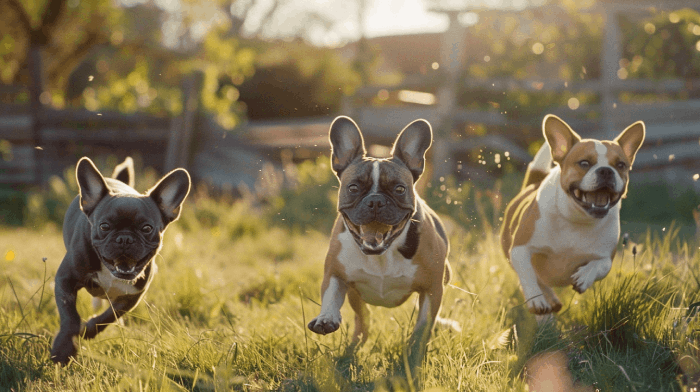
Looking for a pup with a little more pep but still apartment-friendly? This in-between category offers the best of both worlds. Popular breeds like Beagles, French Bulldogs, and Corgis bring a balance of size and manageability. While still considered small, they often have more stamina for longer walks and playtime than their tinier counterparts.
Rare Small Dog Breeds
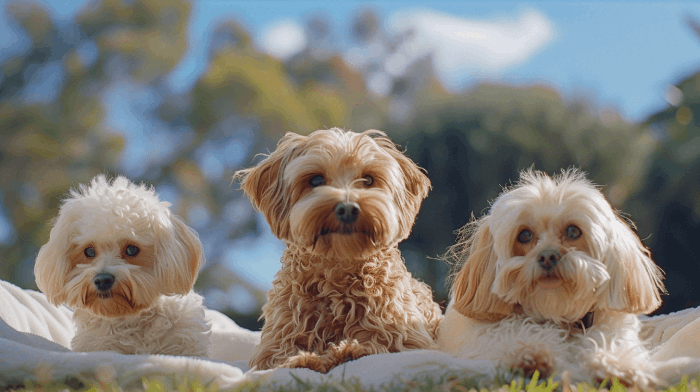
Consider some lesser-known but equally charming small breeds if a unique companion tickles your fancy. Think silky-coated Havanese with energetic bursts, curly-haired Bichon Frisé with teddy bear looks, or the elegant Löwchen resembling tiny lions. While requiring extra research to find reputable breeders, these gems add an exceptional factor to owning a small dog.
Family-Friendly Small Dogs
Small dogs can make wonderful additions to families, but matching the right breed to your household is key! Let’s look at some characteristics that make small pups perfect for family living.
Best Small to Medium Family Dogs

When kids are in the picture, you need a dog with a temperament to match. Look for breeds known for patience and playfulness, like Beagles, Cavalier King Charles Spaniels, and even some larger Poodles. These pups usually handle excited children and chaotic households with easygoing resilience.
Best Small Dog Breeds for Families Non-Shedding
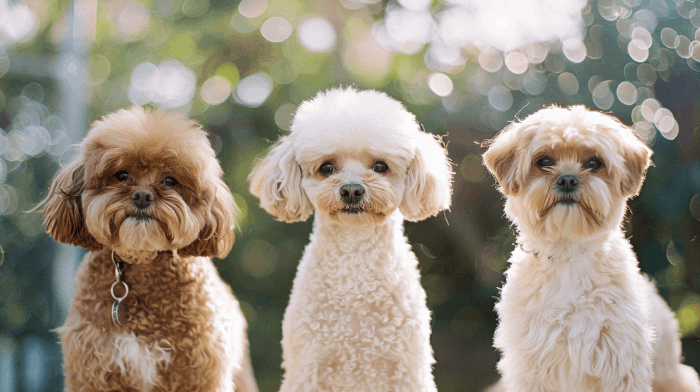
Dog fur and allergies don’t mix! Opting for a non-shedding breed reduces potential triggers. Poodles (in multiple sizes), Bichon Frisé, and Shih Tzus are classic choices. Remember, no dog is truly allergy-free, so meet any potential pup in person beforehand for allergy testing.
Low Maintenance Kid-Friendly Small Dogs

Busy families need pups that fit seamlessly into their lives. Choose breeds requiring minimal grooming and moderate exercise. Smaller Boston Terriers, Pugs, or Cavalier King Charles Spaniels fit the bill. While short walks and play sessions are essential, they won’t demand hours of outdoor energy release.
Characteristics of Small Dogs
Small breeds offer benefits beyond cuddly companionship! Some are known for specific charms that make them particularly well-suited to certain lifestyles.
Cutest Small Dog Breeds
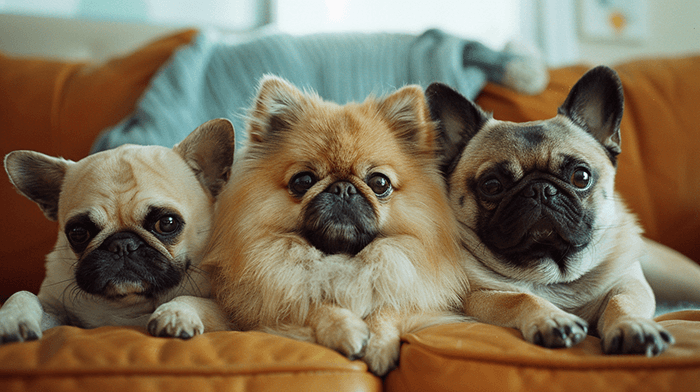
Cuteness is subjective but breeds like Pugs with squished faces, fluffy Pomeranians, and wide-eyed French Bulldogs often top the list for pure “aww” factor. Looks alone aren’t a good fit, so be sure to factor in your temperament and care needs preferences.
Low Maintenance Small Dogs
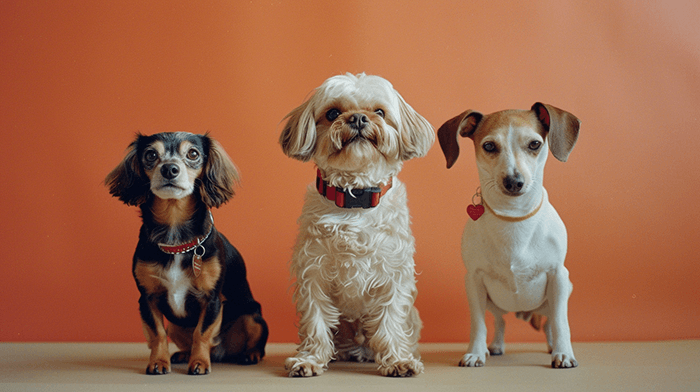
Seeking simplicity? Opt for breeds known for easy grooming and moderate energy levels. Maltese, Chihuahuas (despite a big personality in a small body!), or Dachshunds usually require simple coat care alongside fulfilling basic exercise needs.
Best Behaved Small Dogs
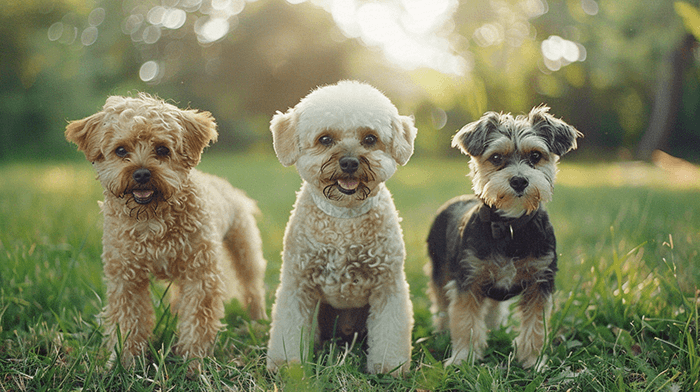
Good manners matter! While all dogs need training, breeds like Bichon Frises, Poodles, and Border Terriers tend to be eager learners. They often excel in obedience with consistent guidance, making everyday life a breeze.
Small Dog Breeds That Are Calm and Easy to Train

Looking for a laid-back, training-receptive pup? Breeds like Cavalier King Charles Spaniels, Havanese, and some smaller Poodles generally combine relaxed vibes with a high trainability factor. This can be an ideal balance for first-time pet owners.
Specialty Small Dog Categories
Small dogs don’t always fit a one-size-fits-all image. Let’s explore some unique types that offer something a little different!
Tiny Dog Breeds That Stay Small
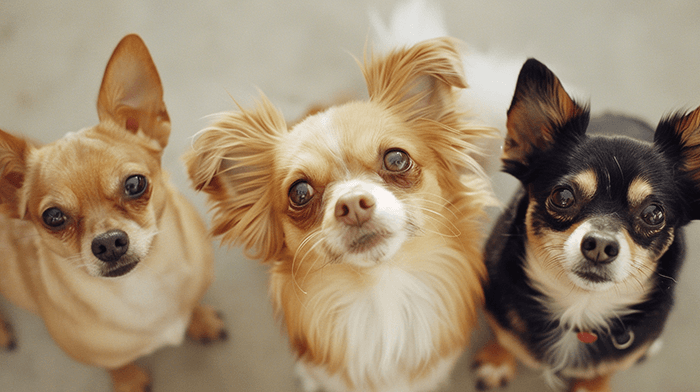
If the miniature is your dream, look no further. Breeds like Chihuahuas, Yorkshire Terriers, and Papillons maintain their puppy-like proportions throughout their lives. Remember, smaller size may sometimes correlate with greater fragility, so gentle handling is essential.
Small Working Dog Breeds

Think working dogs must be huge? Think again! Small breeds like Jack Russell Terriers, Miniature Schnauzers, and even Dachshunds were all originally bred for jobs ranging from pest control to hunting. These energetic breeds are worth considering if you seek a compact pup with a spirited ‘can-do’ attitude.
25 Most Obedient Small Dog Breeds
Training any dog is important, but some breeds have a natural aptitude for learning and pleasing their owners. If you’re seeking a companion eager to master commands, consider these highly trainable small dog breeds.
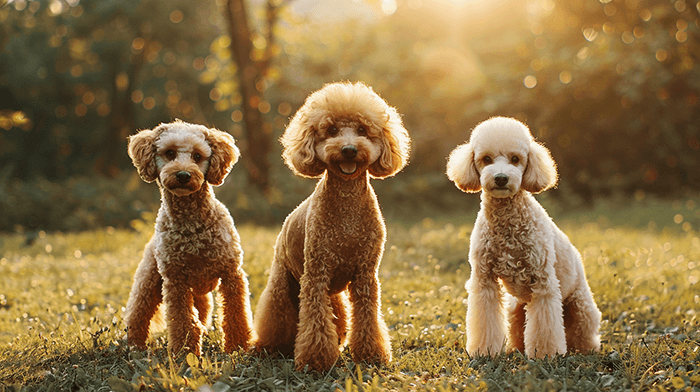
1. Poodle (Toy, Miniature, and Standard)
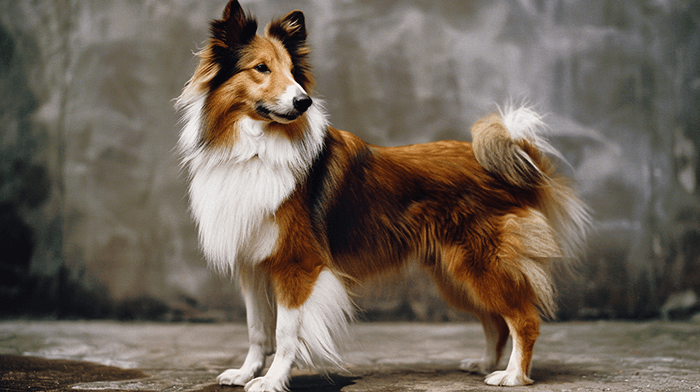
2. Shetland Sheepdog (Sheltie)
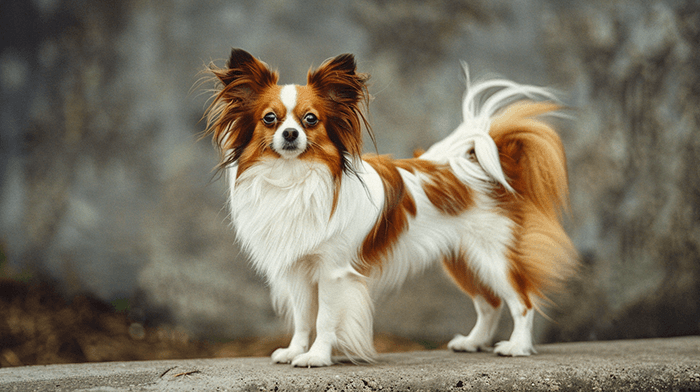
3. Papillon
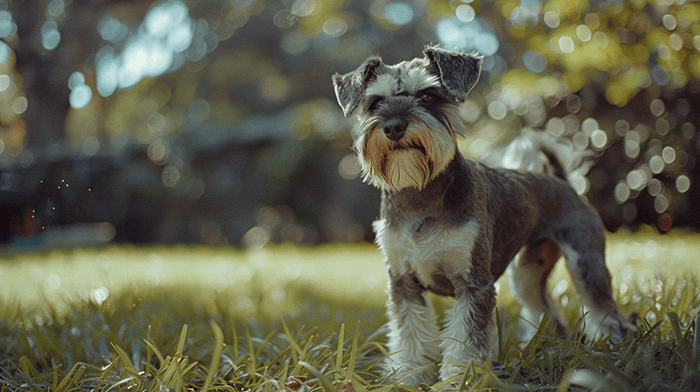
4. Miniature Schnauzer

5. Border Terrier
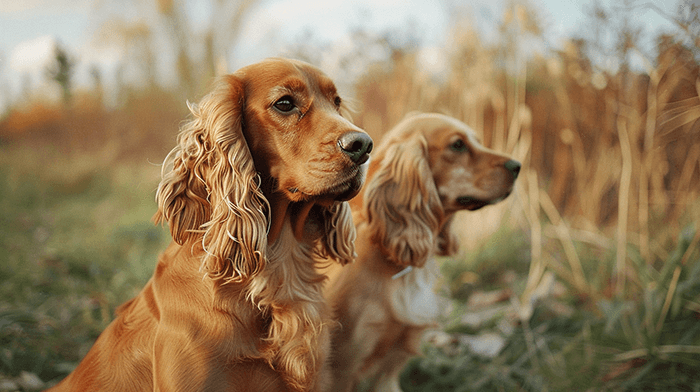
6. Cocker Spaniel (Both English & American)
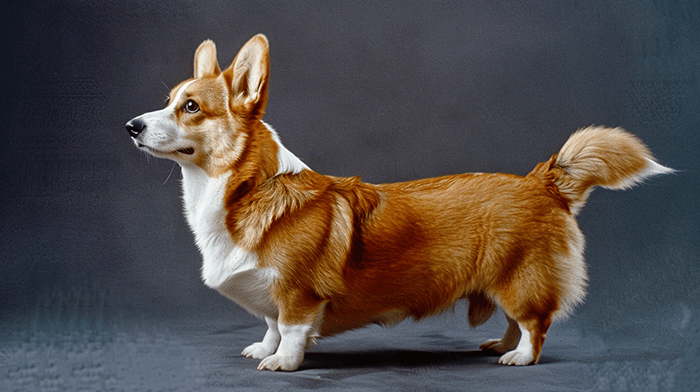
7. Welsh Corgi (Pembroke or Cardigan)
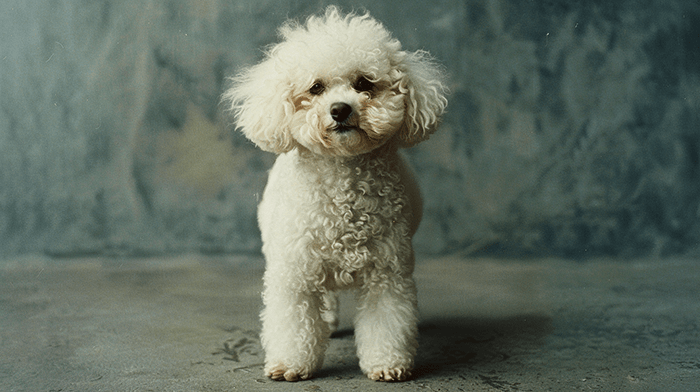
8. Bichon Frise
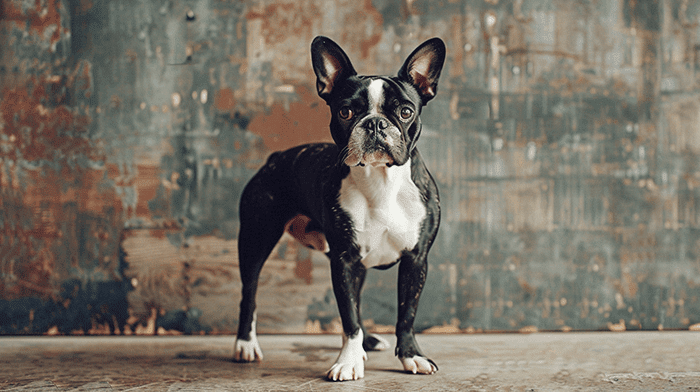
9. Boston Terrier

10. Havanese
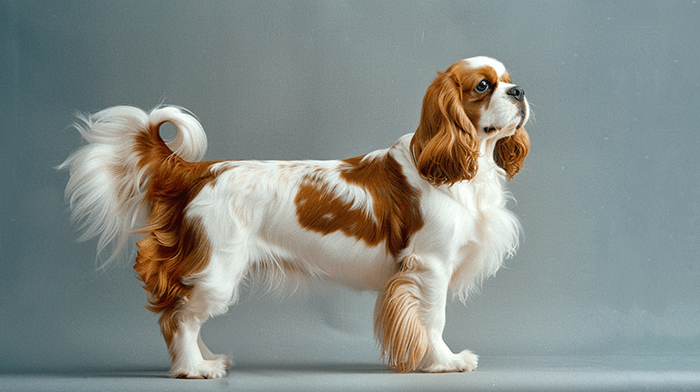
11. Cavalier King Charles Spaniel
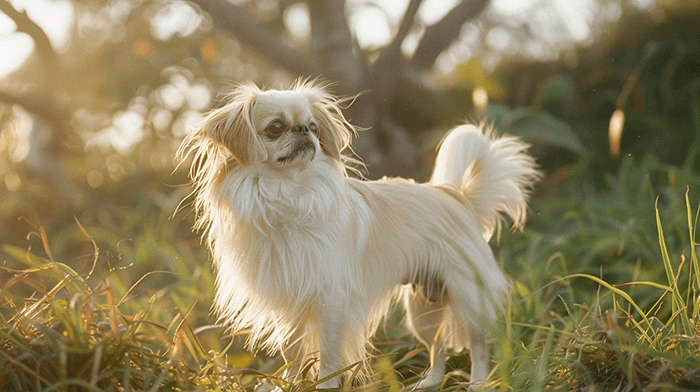
12. Japanese Chin

13. Pug
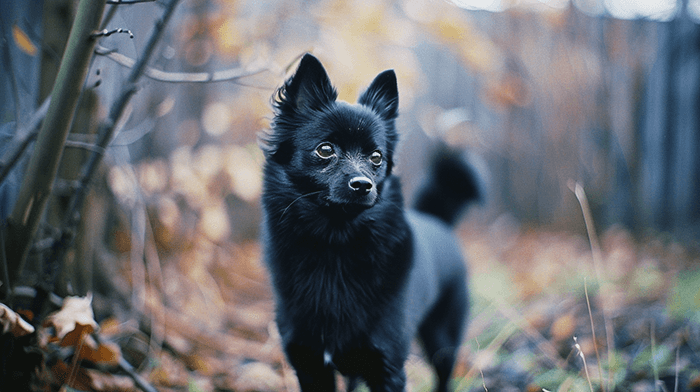
14. Schipperke

15. Australian Terrier
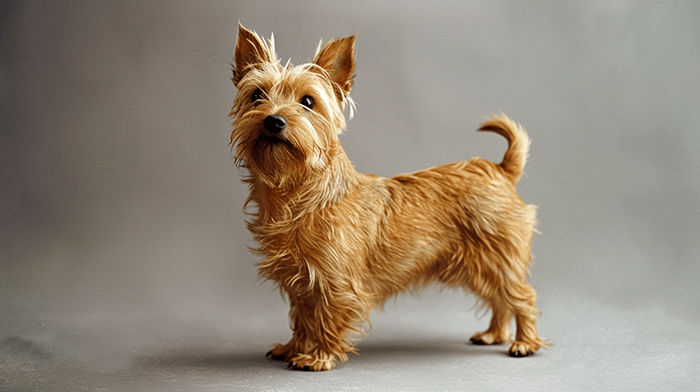
16. Norwich Terrier

17. Miniature Pinscher

18. Beagle
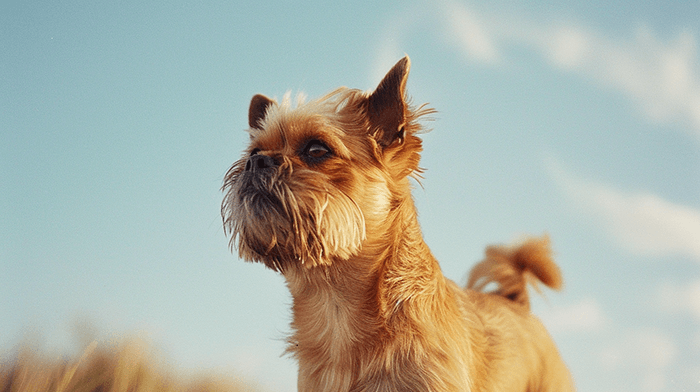
19. Brussels Griffon

20. Bolognese
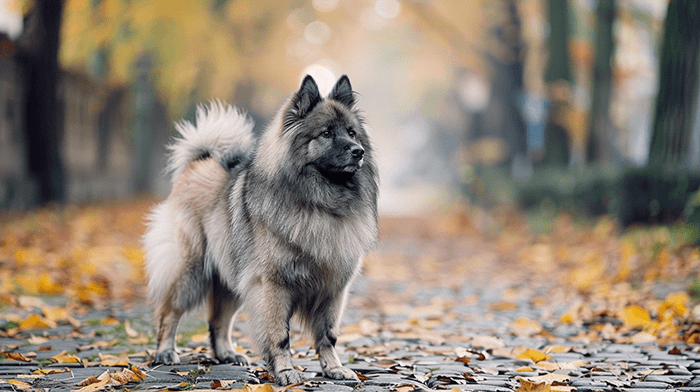
21. Keeshond
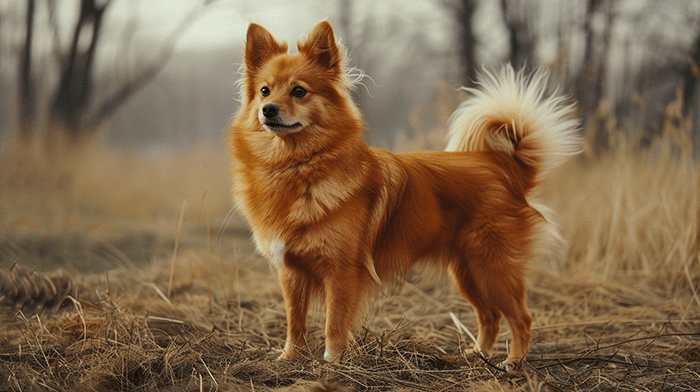
22. Finnish Spitz
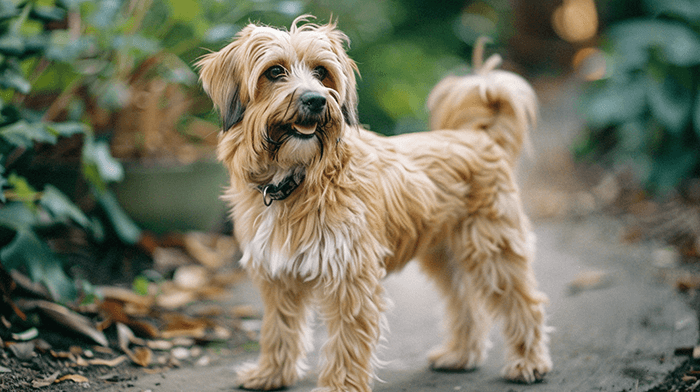
23. Tibetan Terrier

24. Yorkshire Terrier
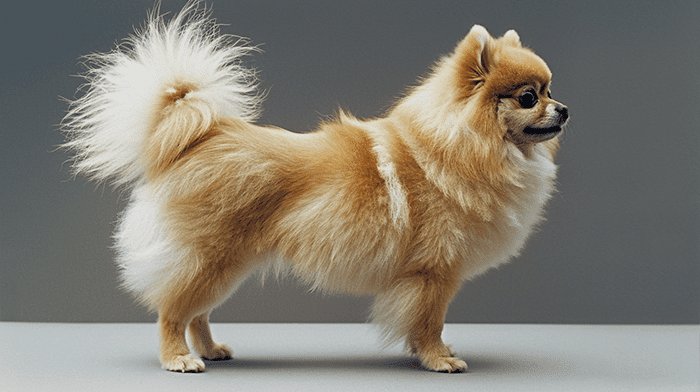
25. Pomeranian
Important Note: This list is just a starting point and subjective, mostly based on personal opinions of our community. Many mixed breeds with these backgrounds might also have excellent training potential. Be sure to investigate further for comprehensive obedience rankings and breed details.
Maintenance and Care for Small Dogs
The joy of small dogs extends beyond their size. Many offer lower maintenance compared to larger breeds! Let’s discuss finding the perfect fit for a more laid-back lifestyle.
Chill Low Maintenance Dogs
Seeking a pup who’s as content cuddling as playing? Certain breeds pair easygoing temperaments with minimal grooming and exercise needs. Look into Cavalier King Charles Spaniels, Greyhounds (surprisingly relaxed indoors!), Bichon Frises, or Shih Tsus. They excel as go-with-the-flow companions for owners with moderate activity levels.
What Small Dog Requires the Least Maintenance?
It’s subjective, as “low maintenance” varies for each owner. Considering all factors, from coat care to energy levels and training ease, a few breeds often top the list. Chihuahuas, Dachshunds (smooth-coated variety), and breeds like Basenjis with naturally less coat care stand out. However, it’s vital to weigh factors like potential stubbornness, barking tendencies, or health concerns of specific breeds in your assessment.
Health and Wellness in Small Dogs
While small dogs often enjoy long lifespans, choosing a breed with fewer known health problems brings peace of mind. It’s vital to note that no dog is immune to all ailments, and responsible breeders take steps to ethically minimize those risks.
What is the Healthiest Small Dog to Have?
Regarding “healthiest,” consider breeds with fewer genetically predisposed conditions. Breeds like Shiba Inus, Beagles, Australian Cattle Dogs (on the smaller end), and some mixed breed dogs inherit increased robustness. It’s essential to research, as individuals may develop varying problems later in life, even within this category.
Important Considerations:
- Reputable Breeders Matter: A knowledgeable breeder focused on health testing makes a massive difference. Never rely on breed reputation alone when seeking a healthy pup.
- Mixed Breeds Offer Advantages: “Hybrid vigor” means mixes sometimes inherit fewer predispositions from purebred parents. While there is no guarantee, consider healthy rescues as an option.
- Preventative Care is Key: Routine vet visits, appropriate nutrition, and exercise maximize any dog’s health, regardless of breed.
Quiet and Calm Small Dog Breeds
Some pups have a naturally quieter bark and lower-key energy, making them a peaceful addition to the home. Let’s investigate breed traits that bring quiet companionship and easygoing vibes.
Quiet Dog Breeds
Some breeds are less prone to frequent barking than others. If minimal vocalization is paramount, consider Basenjis (known for its unique yodel-like sound), Cavalier King Charles Spaniels, Greyhounds, or Whippets. It’s crucial to note that breed predisposition doesn’t mean absolute silence – any dog may find cause to bark occasionally.
Small, Quiet Low, Maintenance Dogs
When quiet combines with minimal grooming and moderate exercise needs, you have a win for easy living! Breeds like French Bulldogs, some Japanese Chins, and Cavalier King Charles Spaniels often fit this ideal. Remember, they will still require daily walks and attention to stay content.
What is the quietest, calmest small dog?
While individuals vary, breeds like Basenjis, Cavalier King Charles Spaniels, and Whippets often earn top places for serenity. It’s vital to understand that calmness doesn’t mean zero energy. These dogs still relish enrichment and enjoy play to ensure happiness.
Special Considerations for Small Dog Ownership
If you have particular anxieties about certain doggy drawbacks, small breeds exist! Let’s address commonly desired combinations that simplify small dog ownership.
Small Dogs That Don’t Shed or Bark
While no guarantee, breeds like Basenjis, Poodles (all sizes), Shih Tzus, and Maltese offer less shedding and are generally not excessive barkers. Remember that “low” shedders may still have moderate grooming needs!
Easy to Train Small Dogs That Don’t Shed
Combining trainability with minimal fur cleanup simplifies pet ownership significantly! Look towards breeds like Poodles, Havanese, Bichon Frises, and smaller Schnauzers for this winning mix. With dedication, they adapt swiftly to positive training, and their coats rarely leave “tumbleweeds” around the house.
What is the Easiest Tiny Dog to House Train?
House training depends on breed aptitude and the new owner’s consistent guidance. However, small breeds like Cavalier King Charles Spaniels, Papillons, Japanese Chins, and Toy Poodles tend to grasp the task with less frustration. Remember that “tiny” may mean accidents are easier to miss early on, so vigilance is vital with the smallest companions.
Conclusion: “Are Shih Tsu Really The Worst Pet Dog?”
While the Shih Tzu breed may present certain challenges that deem them “the worst dog” for some, it’s essential to remember that the suitability of a pet greatly depends on the owner’s lifestyle, preferences, and willingness to commit to their care. This in-depth analysis has highlighted the key considerations, from health issues and grooming needs to training challenges and care requirements, aiming to provide a balanced view that goes beyond the breed’s undeniable cuteness.
Understanding these factors is vital for first-time pet owners to ensure that if they decide to welcome a Shih Tzu into their home, they are fully prepared for the responsibilities it brings. Ultimately, owning a Shih Tzu can be an incredibly fulfilling experience filled with love and companionship with the right preparation, knowledge, and commitment. Remember, no dog breed is inherently “the worst”—it’s all about finding the right match for your life.
- Why Shih Tzu Are The Worst Dog: An In Depth Analysis - February 7, 2024
- Why Schnauzers Are The Worst Dogs (or Are They?) - February 7, 2024
- Can dogs eat gushers? The Answer Might Suprise You - January 26, 2024


